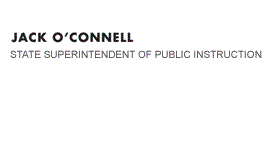AB 1389 Redevelopment Agency Pass-through Payments


Official Letter
Official Letter
Dear County and District Superintendents and Chief Business Officials:
ASSEMBLY BILL 1389-REDEVELOPMENT AGENCY
PASS-THROUGH PAYMENTS
BACKGROUND
A report issued by the State Controller’s Office (Controller) in May 2008 raised concerns regarding pass-through payments from redevelopment agencies (RDAs) to affected taxing entities, including local educational agencies (LEAs). Among other things, the report indicated that some LEAs failed to report to the California Department of Education (CDE) payments received from RDAs that are considered property taxes for purposes of calculating state aid for revenue limits.
On September 30, 2008, the Governor signed Assembly Bill (AB) 1389 (Chapter 751, Statutes of 2008), which requires RDAs and county auditors to annually report information to the Controller, including a one-time report of the amount of RDA pass-through payments made to affected taxing entities between fiscal years 2003–04 and 2007–08. The Controller is required to report to the CDE, by February 1, 2009, and annually thereafter through 2015, the amount of RDA pass-through payments that each school district or county office of education (COE) received and the portion of this amount that is considered to be property taxes for purposes of calculating state aid for revenue limits.
The bill also requires the CDE to calculate on or before April 1, 2009, and annually thereafter until April 1, 2015, the effect on state aid for revenue limits caused by misreported pass-through payments. Specifically, for each fiscal year, the CDE must compare the amounts it used in apportionment calculations, as reported by the school district or COE, to the property tax portion of pass-through payments shown in the Controller’s report. The CDE must determine if the difference impacts state aid for revenue limits and adjust the school district’s or COE’s funding at the next apportionment, if necessary. The first apportionment adjustments will occur at the 2008–09 Second Principal Apportionment (July 2, 2009).
RDA PASS-THROUGH PAYMENTS PREVIOUSLY REPORTED TO THE CDE
To make the calculations required by the bill, the CDE will use the latest certified data for each fiscal year as of February 20, 2009. The amount reported in the following fields will be considered the amount of RDA pass-through payments used in prior apportionment calculations.
School Districts
- Fiscal years 2003-04 through 2006–07: The amount reported as “Community Redevelopment Funds” reported in the district revenue limit adjustments screen in the Principal Apportionment Revenue Software.
- Fiscal year 2007–08: The amount reported as “Community Redevelopment Funds” on Line A-12 in the tax screens of the Principal Apportionment Tax Software or Principal Apportionment Revenue Software.
County Offices of Education
- Fiscal years 2003–04 through 2006–07: No field is available, therefore the amount of pass-through payments is presumed to be zero unless data is resubmitted. Instructions for resubmission are below.
- Fiscal year 2007–08: The amount reported as “Community Redevelopment Funds” on Line A-12 in the tax screens of the Principal Apportionment Tax Software or Principal Apportionment Revenue Software.
We are aware that school districts, COEs, or their county auditors may have reported RDA pass-through payment amounts in other categories. Generally, this will result in an incorrect AB 1389 reduction to future apportionments. Therefore, the CDE is providing an opportunity for school districts and COEs to resubmit their property tax and Community Redevelopment Fund data for fiscal years 2003–04 through 2007–08 solely for the purposes of the CDE’s AB 1389 calculation. This resubmission is separate from the normal data submission required for apportionments and is not intended for school districts or COEs to report pass-through payments that they failed to report in the past. Rather, it is intended to identify Community Redevelopment Fund amounts that were included in other categories in prior submissions. The total of property tax amounts plus the Community Redevelopment Funds amount before and after the resubmission should not change.
DETERMINING IF A DATA RESUBMISSION IS NECESSARY
Please review the following examples to help determine if your district or COE should resubmit its data.
Example 1: A school district received $1,000 from its county auditor that was attributable to a redevelopment agency pass-through. The county auditor reported the $1,000 as secured taxes.
Solution: The district would resubmit its data as illustrated below.
| Taxes | Prior submission | Resubmission |
|---|---|---|
Secured |
$15,000 |
$14,000 |
Unsecured |
$600 |
$600 |
Community Redevelopment Funds |
$0 |
$1,000 |
Total |
$15,600 |
$15,600 |
Example 2: A school district or COE received from an RDA $1,000, $433 of which the school district determined is considered property taxes for revenue limits, pursuant to Section 33607.5 of the Health and Safety Code. The district or COE did not report the amount to the CDE.
Solution: The school district or COE should not resubmit its data. When the CDE compares the amount reported by the district or COE, which is zero, to the Controller’s report, which would show $433, the CDE will make a negative adjustment to the next apportionment in the amount of $433.
Example 3: A school district received and reported to the CDE $1,000 in the Community Redevelopment Funds field. It has since determined that only $433 of this is considered property taxes for purposes of revenue limits.
Solution: The district should not resubmit its data. When the CDE compares the $1,000 reported to the CDE to the Controller’s report, which would show $433, the CDE will make a positive adjustment to the district’s next apportionment in the amount of $567.
Example 4: A COE received $1,000 from an RDA, $190 of which the COE determined is considered property taxes for purposes of revenue limit apportionments. A field was not available in the software so the COE reported the $190 amount as unsecured taxes.
Solution: The COE would resubmit its data as illustrated below.
| Taxes |
Prior submission | Resubmission |
|---|---|---|
Secured |
$14,000 |
$14,000 |
Unsecured |
$790 |
$600 |
Community Redevelopment Funds |
$0 |
$190 |
Total |
$14,790 |
$14,790 |
INSTRUCTIONS FOR DATA RESUBMISSION
School districts and COEs must resubmit their data changes no later than February 26, 2009.
Since the resubmission is intended only to identify Community Redevelopment Funds amounts that were included in other categories in prior submissions, the total of property tax amounts plus the Community Redevelopment Funds amount before and after the resubmission must be the same, otherwise the CDE will reject the resubmitted files. The county auditor must certify tax resubmissions and COEs must maintain documentation of this certification. The resubmission does not require an auditor concurrence pursuant to Education Code Section 41341.
School Districts
If it is necessary for a school district to resubmit its data, the district must work with its county auditor and COE to disaggregate its Community Redevelopment Funds out of other categories and re-report its tax and revenue limit adjustment data using the Principal Apportionment software. For fiscal years 2003–04 through 2006–07, Community Redevelopment Funds must be reported in the Principal Apportionment Revenue software on the District Revenue Limit Adjustments data entry screen. For fiscal year 2007–08, Community Redevelopment Funds must be reported in the Taxes entry screen in the Principal Apportionment Revenue or Tax software.
COEs are requested to work with school districts to verify the amounts, make any necessary changes, and upload the changes to the CDE by February 26, 2009.
The prior years’ software can be downloaded from the CDE’s website at http://www.cde.ca.gov/fg/sf/.
County Offices of Education
A data field for Community Redevelopment Funds was not available in the software version for COEs in fiscal years 2003–04 through 2006–07. Therefore, COEs must resubmit their property taxes by completing a preloaded Excel spreadsheet, which is available by e-mailing Stel Cordano, at scordano@cde.ca.gov [Note:
the preceding contact is no longer valid. Please contact the Office of Principal Apportionment and Special Education by email at PASE@cde.ca.gov or by phone at 916-324-4541.] For fiscal year 2007–08, Community Redevelopment Funds must be reported in the Taxes entry screen in the Principal Apportionment Revenue or Tax software.
REPAYMENT PLANS AND APPEALS
Any adjustments that the CDE makes to a school district’s or COE’s apportionment pursuant to this bill is deemed an apportionment significant audit exception for purposes of Article 3 (commencing with Section 41330) of Chapter 3 of Part 4 of Division 3 of the Education Code. Therefore, audit repayment plan and appeal options are available.
If the school district or COE is in disagreement with the finding, they may file an appeal with the Education Audit Appeals Panel pursuant to Education Code Section 41344 or Section 41344.1. Information about the appeals process is available on the Education Audit Appeals Panel’s website at http://www.eaap.ca.gov.
If the offset would constitute a fiscal hardship, a school district or COE can request a repayment plan. A copy of the CDE’s letter dated December 8, 2000, which provides information regarding the procedures and timelines for requesting a repayment plan, is available on the CDE’s website at http://www.cde.ca.gov/fg/au/ag/repayltr.asp. Please note the following update to that letter. LEAs may also request a repayment plan within 30 days of receiving a final determination on an appeal, or within 30 days of receiving a determination of an informal, summary appeal (Education Code Section 41344.1(d)(4)). Please submit repayment requests to:
California Department of Education
School Fiscal Services Division
Audit Resolution
1430 N Street, Suite 3800
Sacramento, CA 95814
For purposes of Education Code sections related to repayment plans and appeals, the date of receipt of the CDE notification of adjustments (due April 1 each year) will be considered to be the date of receipt of the final audit report that includes those audit exceptions. If the school district or COE does not file an appeal or request a repayment plan, the CDE will apply an offset at the next apportionment.
County superintendents of schools are requested to provide school districts immediately with a copy of this letter.
If you have any questions or need further information related to this letter, contact Stel Cordano, Consultant, Office of Principal Apportionment and Special Education, at 916-327-0378, or by e-mail at scordano@cde.ca.gov [Note:
the preceding contact, phone number and email are no longer valid. Please contact the Principal Apportionment Section by email at PASE@cde.ca.gov or by phone at 916-324-4541.] For questions related to data submissions, contact Zandra Black, Consultant, Office of Principal Apportionment and Special Education, at 916-324-4547, or by e-mail at zblack@cde.ca.gov [Note:
the preceding contact, phone number and email are no longer valid. Please contact the Principal Apportionment Section by email at PASE@cde.ca.gov or by phone at 916-324-4541.].
Sincerely,
Peter Foggiato, Administrator
Office of Principal Apportionment and Special Education
